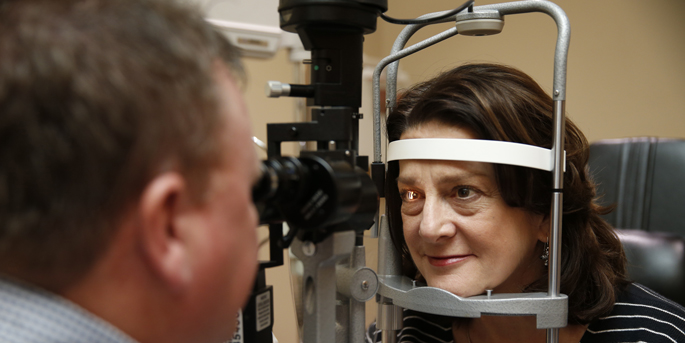Cataracts
-

Measurements of age-related changes in eye lens proteins yield insights into cataract formation
By determining how proteins in different areas of the eye’s lens change over time, Vanderbilt researchers have learned more about how they could contribute to the mysterious progression of cataracts—a clouding of the lens that affects more than 65 million people worldwide each year. Read MoreJan 5, 2023
-

Study explores treatment options for babies with cataracts
Cataracts are uncommon in babies but when they occur the cloudy lenses must be removed without delay or blindness may result. Read MoreJun 26, 2019
-

A cataract-heart connection
Studies of alpha-B crystallin in zebrafish could ultimately lead to improved treatment for cataracts and heart disease. Read MoreJan 25, 2018
-

In a zebrafish’s eye
Vanderbilt investigators demonstrate that a certain eye lens protein is evolutionarily conserved between zebrafish and rat, suggesting that zebrafish can be used as a model system to understand eye lens disorders such as cataracts. Read MoreJul 29, 2015
-

Cataract surgery helps clear clouds from patient’s vision
Suzy Gore spent the last 10 years watching her eyesight decline. Unable to see the vision chart at her doctor’s office without corrective lenses, tired of halo effects around lights and the challenge of driving at night, Gore decided to undergo laser cataract surgery. Read MoreJan 9, 2014